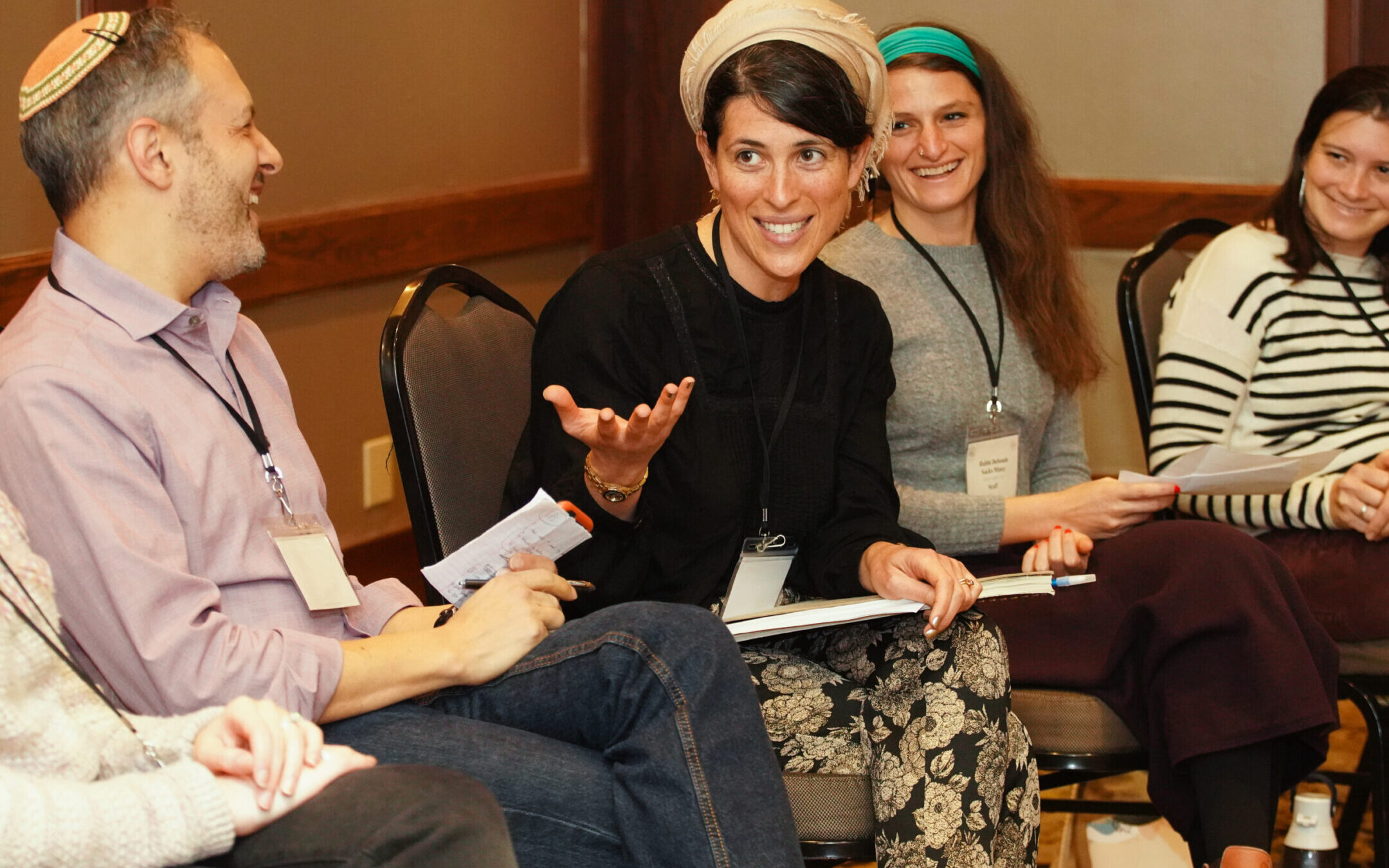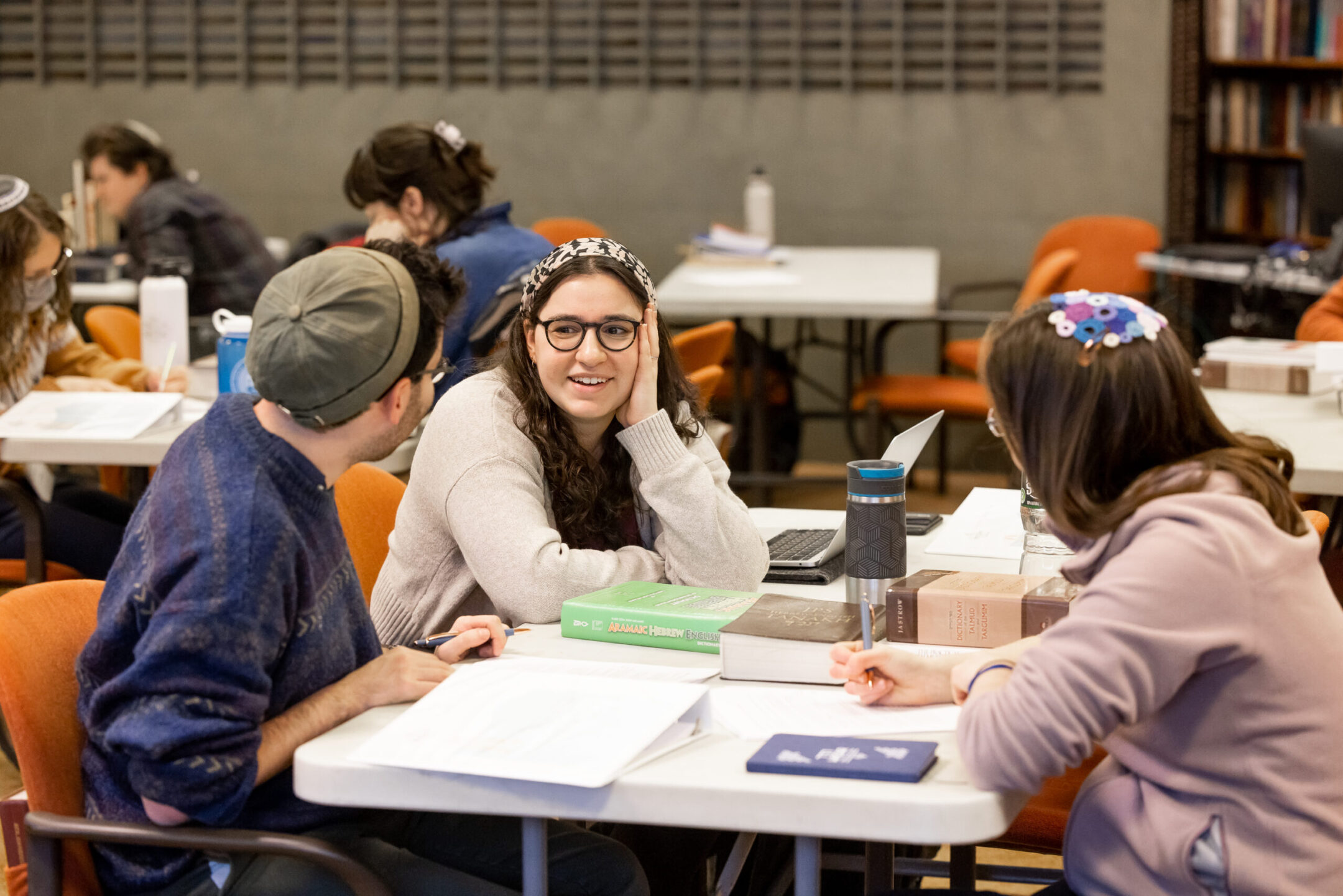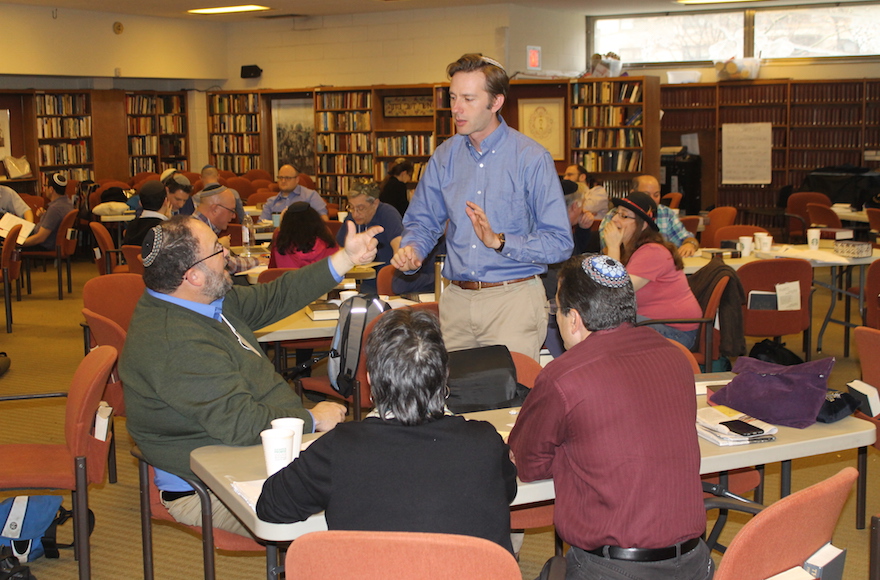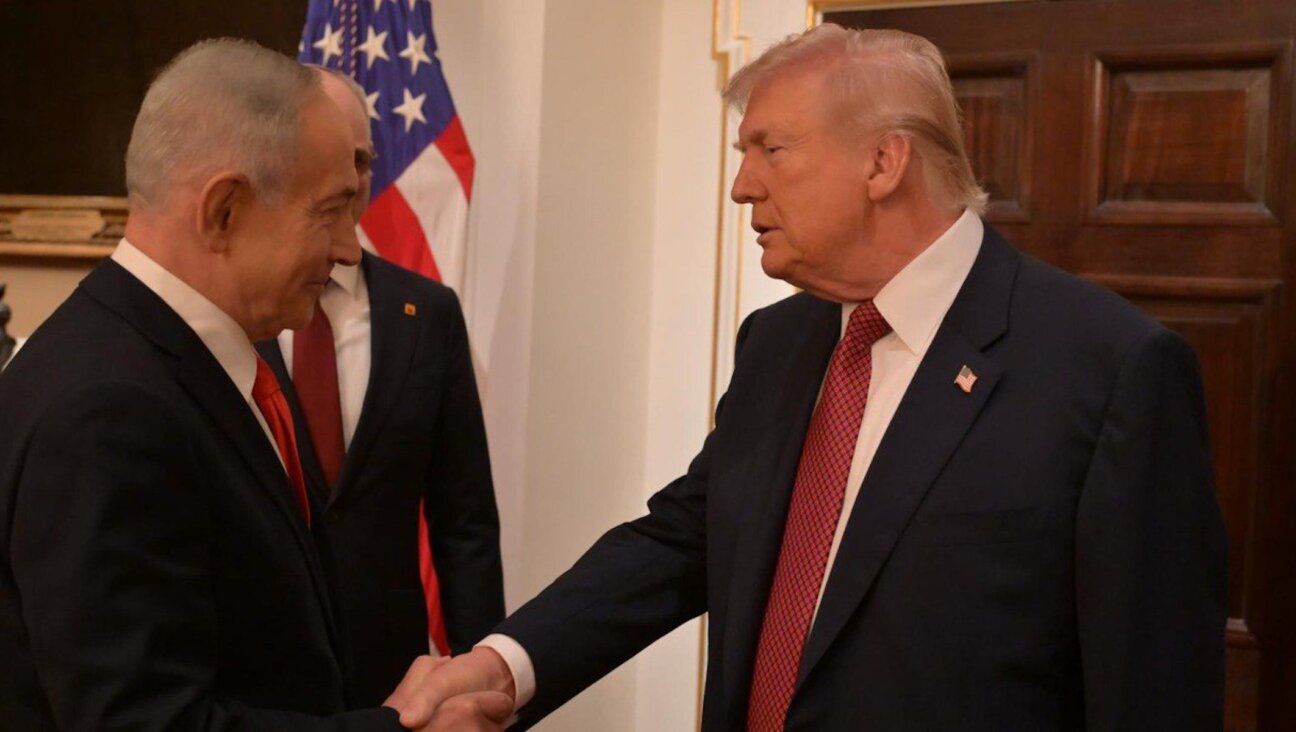Hadar is ordaining its first rabbis. For now, they’ll be the only ones minted by the egalitarian yeshiva.
Most of the new rabbis plan to work as teachers after ordination

Hannah Kapnik Ashar is being ordained as a rabbi after studying at Yeshivat Hadar in New York City. She plans to start a women’s prayer initiative in her home city of Denver. (Courtesy Hadar)
(JTA) — Later this summer, Yael Jaffe is preparing to do something unusual for graduates of her rabbinical school: She will start working at a synagogue.
“It was definitely a bit of a surprise for me, too,” Jaffe said this month about her role at New North London Synagogue in the British capital. “I find it really incredible and bold of them to be open and excited about bringing in this different kind of model of training, and seeing what that has to offer to the community.”
Jaffe was referring to her background as one of the first rabbis to be ordained by Yeshivat Hadar, the egalitarian yeshiva founded in 2006 and based in New York City whose sprawling activities all center on rigorous study of Jewish texts. The yeshiva’s first seven rabbinical students are being ordained on Monday, with five more to follow in the coming months.
Jaffe and her classmates are all setting out to do what Hadar hoped for when it announced four years ago that it would begin ordaining rabbis: spread the yeshiva’s vision for traditional Jewish learning and observance, with a contemporary commitment to egalitarianism, LGBTQ inclusion and reaching Jews across denominations.
“As force multipliers for those values, they are going to be very strong influences on the ecosystem,” Rabbi Ethan Tucker, one of Hadar’s three founders, said about the new rabbis. “That’s the first thing they bring. And the second thing they bring to the table is this real depth of learning and mastery of the tradition.”
Most of the new rabbis plan to work as teachers after ordination. Two of Jaffe’s classmates, each with doctorates in Talmud already, will stay at the institutions in Israel where they already work: Joshua Kulp at the Conservative Yeshiva and Jason Rogoff at Hadar. Others will be working in similar settings, or attempting to create them. One is moving to Berlin to work with young adults while writing a book about gender in Jewish texts. Another has gotten a grant to launch a Jewish women’s prayer initiative in her hometown of Denver.
They’re taking those jobs, and passing up the pulpit, amid a crisis in the traditional rabbinic marketplace. Enrollment is down at non-Orthodox seminaries, and there are frequently more synagogues hiring rabbis than rabbis seeking jobs — leaving some Jewish communities without spiritual leaders.

Hadar’s leaders say their training program was designed to create rabbis who can adapt to evolving needs, not just those of the present. And they’re being selective in designing the future of the rabbinical program: The first graduating cohort is also the only one, for now. Rather than admit a class every year, Hadar is waiting to ordain rabbis again until there is another group of people they’re confident can execute their vision.
“This intervention in rabbinic leadership training came about because we felt that our vision of creating and strengthening Jewish community on the ground needed a catalyst of leaders who are going to help make that real,” Tucker said. “That’s why we did this and that’s why I assume we’ll do it again.”
He added, “We really try to not let conventional forms of how you must do things determine what it is that we stand for.”
Most U.S. rabbinical schools replicate an academic model, requiring students to take an array of discrete courses and awarding a master’s degree as well as ordination. Hadar eschewed that model, instead building a four-year schedule of full-day text-study sessions as well as exams on Jewish law, or halacha, and other topics that mirrored those required by Israel’s Orthodox rabbinical authorities.
Hadar also did not include explicit training in some of the practical aspects of rabbinic work that are increasingly emphasized by other rabbinical schools, including sermonizing, nonprofit management and providing emotional support, or “pastoral care.”
“It looks different on paper from a lot of other rabbinical schools,” Jaffe said. “Things that are different can feel frightening. But it brings me so much joy to know that we do have something really special to offer to the world.”
The program did not call for students to take on side jobs, as most students at other rabbinical schools do to gain experience and mitigate against steep tuition bills. Instead of charging tuition, Hadar paid its students stipends. It also embedded opportunities to teach children, college students and adults into Hadar’s broad slate of activities, which has grown in scope and scale over the past several years. (The organization now has an annual budget of more than $10 million and four satellite locations outside New York.)
“They’re sort of in a constant state of internship by virtue of interacting with all the different programs that Hadar does,” said Rabbi Aviva Richman, who serves as a rosh yeshiva, or leading rabbi, at Hadar. “They’re getting experiences, but not in a way that a lot of other rabbinical schools do it, where people are doing multiple internships or jobs alongside their learning in a way that can make it hard to get fully steeped in the learning.”

Some of the rabbis being ordained by Hadar sought out additional training to fill in some of the skills their seminary did not emphasize. One student is delaying his ordination to complete a full course of study in pastoral education, while another, Hannah Kapnik Ashar, participated in a fellowship program offered by a nonprofit, Atra, that facilitates rabbinic entrepreneurship.
Kapnik Ashar attended Atra sessions on evenings and weekends after participating in Hadar sessions during the day. For her, that meant studying from 7 a.m. to 3 p.m. because her family relocated to Denver during the pandemic. She will be starting the Jewish women’s prayer initiative there, and said the sessions offered practical training that she needed as she worked to turn that vision into reality.
“It was really the right time for me to do that fellowship,” said Kapnik Ashar, who worked in a Boulder, Colorado, synagogue for five years before enrolling in Hadar’s rabbinical program. “But I don’t know that I would advise Hadar to integrate Atra’s content for people who didn’t have a project they were really working on.”
Atra’s executive director, Rabbi Shira Koch Epstein, said she believes rabbis need more than text-study skills to be effective — but she emphasized that all rabbis have gaps in their training that can be filled over time.
“I do think that it’s essential for rabbis to have pastoral care training.… As soon as you have the title ‘Rabbi,’ people come to you for that,” she said. “And I wish that all rabbis had learning in organizational dynamics and management just because I think most of them wind up needing that in their careers.”
But Koch Epstein, a graduate of the Reform movement’s Hebrew Union College, said she thought Hadar was wise to create what she called “a minimum viable product” in an ordination program that was designed to meet particular needs without committing to operating indefinitely.
“At a moment where the Jewish community needs as many talented, knowledgeable and educated rabbis as we can train… there’s a need for some experimentation here,” Koch Epstein said.
“Hopefully, we’ll learn some things from them having experimented with this,” she added. “It’s challenging to figure out what a rabbi is for and what a rabbi must do when paradigms are shifting so fast. And so every place training rabbis has to be rethinking and experimenting and learning and trying.”
Hadar’s focus on text will be reflected in a celebration of the new rabbis on Monday where each of them plans to lead a study session, with topics ranging from building prayer communities where members do not all share the same beliefs to considering what Jewish law has to say about trans men’s use of ritual baths or exploring Jewish feminist theology alongside stories from the Torah. The event, to be held at New York City’s Congregation Rodeph Sholom, is expected to draw hundreds of people, including leaders of other rabbinical schools, in a sign of Hadar’s maturity as a player in the Jewish learning landscape.
Hadar is confident that its new rabbis, who advanced through the program together during the pandemic, can pivot to whatever role they’re meant to fulfill.
“We’re interested in the long game,” Richman said. “When I think long-term about how all of what they’re bringing to the table can be deployed in various areas of need in the contemporary Jewish community, I think there’s a whole lot of possibilities.”
This article originally appeared on JTA.org.
















